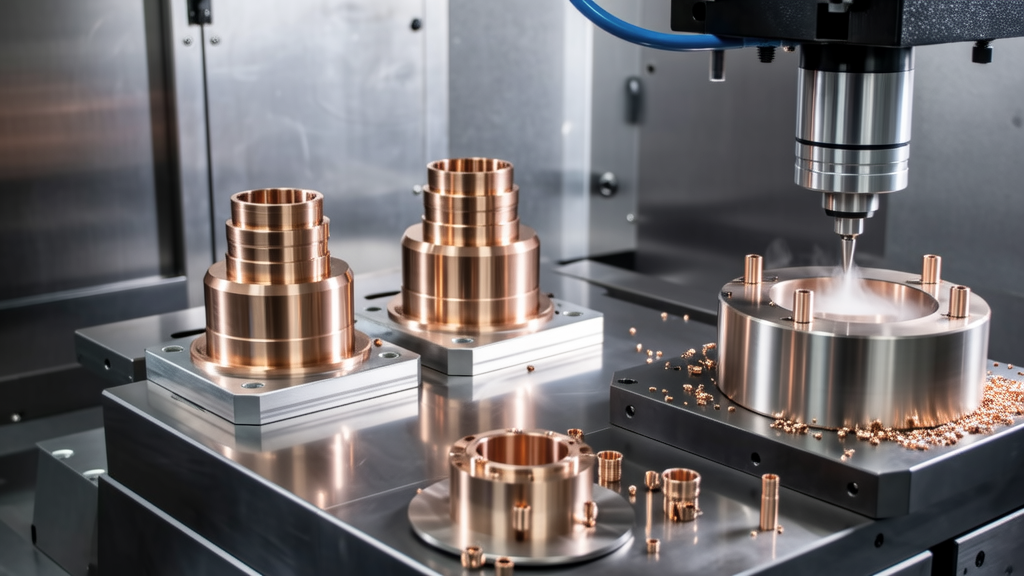Are you trying to figure out why CNC technology has taken the spotlight for precision parts manufacturing in Shenzhen? Let me tell you, I’ve seen this technology transform the industry firsthand. There are so many compelling reasons to choose CNC machining, and I want to break it down for you in a way that’s easy to understand.
Unmatched Precision and Consistency
When it comes to precision parts, the margin for error is razor-thin. CNC machines are designed to handle complex geometries with incredible accuracy. I remember visiting a facility working on medical device components where they relied solely on CNC machining. Every piece they produced needed to meet exacting standards. They told me that switching to CNC not only enhanced their accuracy but also reduced the occurrence of defects in production. This allowed them to scale up their operations while maintaining high quality.
So, how does this level of precision work? CNC machines use computer algorithms to control the movement of cutting tools. This means they can replicate the same motion endlessly without the inconsistencies that come with manual labor. When I spoke to my friend who’s a CNC operator, he emphasized how the machine’s repeatability is a game-changer—cutting costs in material wastage and time.
Flexibility in Design and Material Choices
One of the coolest things about CNC machining is its adaptability. Whether you’re working with metals, plastics, or composites, CNC machines can handle a variety of materials. A few months back, a client asked us to produce parts using an engineering-grade plastic because their previous supplier couldn’t make the switch. Thanks to our CNC capabilities, we were able to quickly adapt to their needs and deliver within weeks.
You see, CNC technology allows for swift adjustments in design. It’s quite different from traditional machining where a new tool or die would take weeks to create. By simply uploading new design files to the CNC machine, manufacturers can make changes almost on the fly. This capability is especially useful in Shenzhen’s dynamic market, where customer requirements can change almost overnight.
Cost-Effectiveness Over Time
You might be thinking, “But isn’t CNC machining expensive to set up?” Initially, it can be, but let me assure you that the long-term cost savings can be significant. I once worked on a project that involved transitioning from conventional machining to CNC. The machinery costs were high, but the reduction in labor costs and the ability to produce parts faster made up for it in no time.

A key point to note is that the efficiency of CNC machines reduces labor costs and increases production rates. Most businesses notice a quick ROI after investing in CNC technology, particularly as demand for high-volume, high-quality parts increases. According to a study from the National Institute of Standards and Technology, CNC machining can improve production speed by 50% compared to manual processes.
Quality Control Mechanisms
Quality is paramount in any manufacturing process, and CNC technology integrates quality control directly into the machining process. Many modern CNC machines come equipped with sensors and feedback systems. This means they can monitor their performance and make automatic adjustments as necessary. I had a conversation with a quality engineer who told me how they use these features to ensure every batch meets specifications. It’s like having a skilled inspector onboard with every operation!
It’s a level of assurance that manual methods simply can’t offer. If there’s an issue, manufacturers can trace it back to specific parameters and adjust accordingly. This kind of proactive quality management is essential, especially when you consider the competitive nature of Shenzhen’s manufacturing industry.
Conclusion
By now, you might be convinced that CNC technology is the way to go for precision parts manufacturing in Shenzhen. Why not give it a shot? If you’re feeling overwhelmed with technical details or you’re uncertain about how to start transitioning to CNC, I suggest reaching out to CNC experts for guidance. You might find that the benefits far outweigh the initial challenges. If you experiment with these advancements and apply them, I’d love to hear how it goes!
What kind of precision can I expect from CNC technology?
CNC technology offers unmatched precision, often to within a few microns. This is crucial for industries where even the slightest error can result in major issues, like in aerospace or medical device manufacturing.

For instance, when producing components that require intricate designs or tight tolerances, CNC machining can replicate the same specifications consistently across multiple runs, minimizing defects.
How does CNC technology adapt to different materials?
CNC machines are extremely versatile and can handle a wide range of materials including metals like aluminum and steel, as well as plastics and composites. This means you can easily switch from one material to another depending on your project needs.
This adaptability happens quickly because the settings can be adjusted via software rather than physical tooling changes, allowing manufacturers to respond rapidly to market demands in Shenzhen.
Are the initial setup costs of CNC machines worth it?
While the initial investment in CNC technology can be high, many businesses find that the long-term savings in labor and material costs make it worthwhile. Production speeds can increase by 50% or more when switching to CNC machining.
Over time, companies often see a quick return on their investment as the efficiency gains translate into higher output and reduced wastage.
How does CNC technology ensure consistent quality control?
CNC machines are equipped with advanced sensors and feedback systems that continuously monitor their performance. If any deviations from the desired specifications occur, the machine can automatically adjust itself.
This built-in quality control is a game-changer, allowing manufacturers to catch issues early and maintain high standards across their product lines without requiring extensive manual inspections.
Is it easy to train staff to operate CNC machines?
While operating CNC machines does require some skill, many manufacturers find the training process straightforward. Typically, operators can become proficient in a matter of weeks, especially with hands-on experience.
It’s also common for companies to provide ongoing training as technology evolves, ensuring that staff stay updated on the latest advancements in CNC operations.



